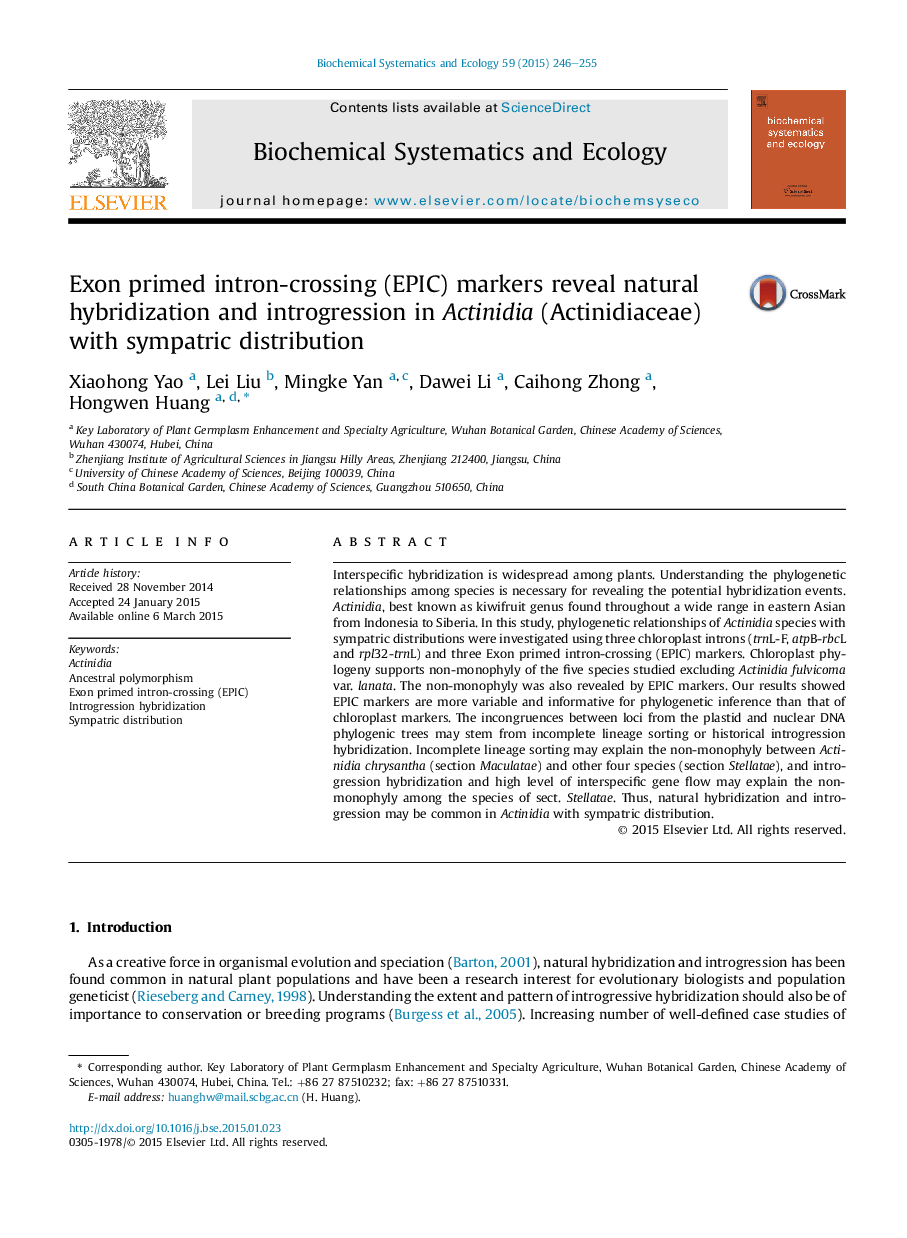| Article ID | Journal | Published Year | Pages | File Type |
|---|---|---|---|---|
| 1351367 | Biochemical Systematics and Ecology | 2015 | 10 Pages |
•EPIC markers are more variable and informative for phylogenetic inference than that of chloroplast markers.•The non-monophyly of Actinidia may stem from incomplete lineage sorting or introgression hybridization.•Natural hybridization and introgression may be common in Actinidia with sympatric distribution.
Interspecific hybridization is widespread among plants. Understanding the phylogenetic relationships among species is necessary for revealing the potential hybridization events. Actinidia, best known as kiwifruit genus found throughout a wide range in eastern Asian from Indonesia to Siberia. In this study, phylogenetic relationships of Actinidia species with sympatric distributions were investigated using three chloroplast introns (trnL-F, atpB-rbcL and rpl32-trnL) and three Exon primed intron-crossing (EPIC) markers. Chloroplast phylogeny supports non-monophyly of the five species studied excluding Actinidia fulvicoma var. lanata. The non-monophyly was also revealed by EPIC markers. Our results showed EPIC markers are more variable and informative for phylogenetic inference than that of chloroplast markers. The incongruences between loci from the plastid and nuclear DNA phylogenic trees may stem from incomplete lineage sorting or historical introgression hybridization. Incomplete lineage sorting may explain the non-monophyly between Actinidia chrysantha (section Maculatae) and other four species (section Stellatae), and introgression hybridization and high level of interspecific gene flow may explain the non-monophyly among the species of sect. Stellatae. Thus, natural hybridization and introgression may be common in Actinidia with sympatric distribution.
